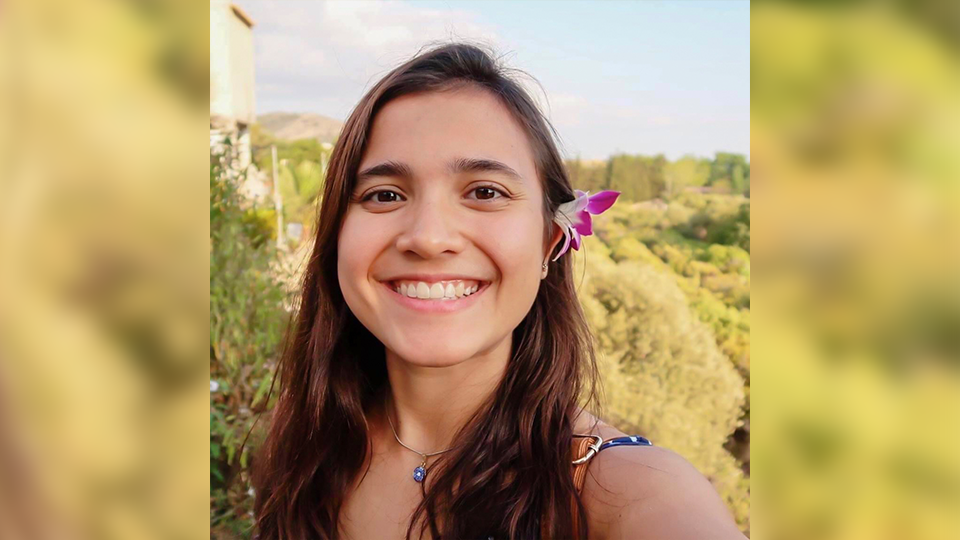"I chose to study at the University of Melbourne because it is one of the leading research hubs in the world, which is up my alley considering I’m aiming towards having research be a part of my future physiotherapy career."

. . .
How would you describe the experience of studying the Doctor of Physiotherapy?
I’ve found the Doctor of Physiotherapy to be an engaging and enriching experience filled with opportunities to challenge myself, explore new interests, and be nudged towards consistent growth. The lecturers and tutors are very passionate about their areas of research and expertise, and it is evident in the enthusiasm they exude when teaching the subjects they are in charge of. This enthusiasm has made me excited about the various fields of physiotherapy that we’ve been exposed to and I’m now a little torn between a few directions that I’d like to take with my future career, which, in the grand scheme of things, is a good problem to have.
What has been your most challenging study or university related experience?
My favourite subject so far has been Cardiorespiratory Physiotherapy because I’ve always been very interested in the anatomy and physiology concerning the heart and lungs. As such, to be able to learn of rehabilitation techniques for problems like low lung volumes and impaired airway clearance has been enjoyable because I am at a point in my studies where I can finally see the clinical application of my knowledge.
Why the University of Melbourne?
I chose to study at the University of Melbourne because it is one of the leading research hubs in the world, which is up my alley considering I’m aiming towards having research be a part of my future physiotherapy career. Additionally, I also chose the University of Melbourne because I learned that it has a large percentage of international students within the community, which promises a vibrant and diverse student population. I enjoy learning about different cultures and stories from different parts of the world, and as an international student myself, knowing that I’d meet others in a similar boat to me would be a huge part in making me feel a sense of belonging upon moving here, and that was the case for me.
Were there any social causes or personal motivations that led you to pursue your chosen field of study?
I am very passionate about geriatric healthcare and would love to be a part of the rehabilitation team that focuses on not only increasing the lifespan of older adults, but also their health span. I hope to be able to provide older adults with the opportunity to live with as high a quality of life for as long as possible.
University highlights
A highlight of studying at the University of Melbourne was co-founding the Melbourne University Dragon Boat Club in 2018. The university has always been very supportive of its students pursuing their passions and I, along with the club’s co-founder, are very appreciative of their support through every step of the club’s establishment. Since the club’s establishment, we’ve grown the team tremendously and we’ve taken part in some incredible regattas locally and internationally.
What has been your most challenging study or university related experience?
During my undergraduate degree, I initially found it quite difficult to make deep friendships because I was always only transiently meeting course mates at tutorials or lectures because I didn’t share a similar timetable with anyone else. However, after being a part of the Melbourne University Dragon Boat Club, I met a lot of like-minded people with similar interests to me and, along with the inherent nature of sports that fosters bonding, I managed to build several lifelong friendships.
Advice for students
If you could go back to your year 11 or 12 self and give yourself one piece of university related advice, what would it be?
Don’t be too stressed about not knowing your end destination because the answer always has been in your heart and what you love to do. The key is to find a place that can help you realise that. Back then, I was quite flustered over not having a clear direction in my head, but with every year in university, I was immersed in various learning opportunities that gave me ‘aha’ moments, which I took as indications that I wanted that specific aspect of what I was studying as part of my future career. I was initially quite stressed about liking so many different things, but I took comfort in the knowledge that it is more common than you think to end up with a multi-faceted career.
What are your future ambitions?
In the short-term, I’d really love to be a physiotherapist working in the cardiorespiratory and/or geriatric fields. I still really would like to do a PhD that is either cardiorespiratory physiotherapy-related or sarcopenia-related – sarcopenia is a muscle-related disease that’s quite prevalent in the older adult population. As for long-term, it’s still a little hazy, but I do have some rough ideas of what I might get into. I’d really like to potentially establish an outpatient geriatric physiotherapy clinic, do heaps of research in areas I’m passionate about, or even perhaps be a lecturer in physiotherapy subjects I research.